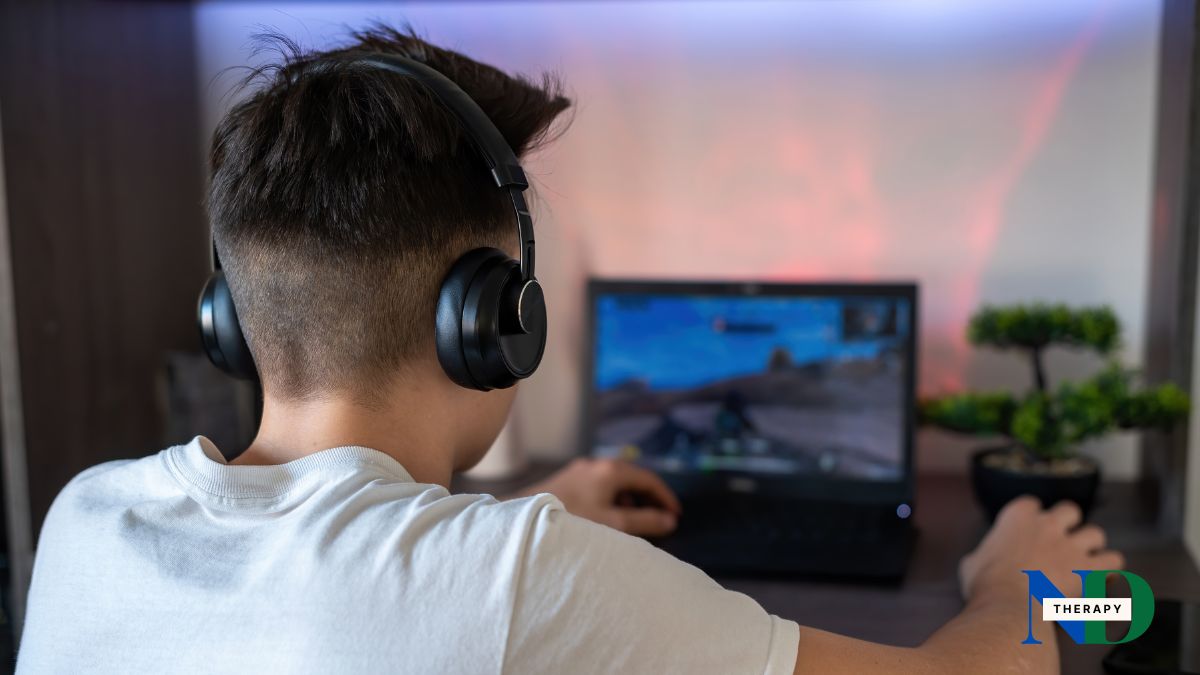Internet Addiction Is Treatable!
Electronics addiction is fast-growing and harmful due to easy access and low stigma. Many spend 8+ hours online daily—but how much is too much? If excessive screen time affects your work, relationships, or well-being, and you struggle to cut back, it may be an addiction. This issue affects children, adolescents, and adults but can be managed. Therapy can help you regain balance and improve your life.
What is Internet Addiction?
Internet Addiction occurs when a user’s life is disrupted by excessive online time. Like chemical addiction, behavioral addictions like Internet Addiction feel good, to the point the addict wants to spend most of their time online. As a result, real-life responsibilities fade, resulting in the deterioration of relationships. Unfortunately, the Internet addict justifies this time and does not often consider themselves addicted. Addictions such as Internet Addiction usually last for months and years, with the addict unaware of the damage they are doing to themselves.
Internet Addiction is personal to me, as I was an Internet Addict. I spent 10-16 hours daily playing an online game for six years. During this period, my grades in college were not as they should have been, and I had few real-life relationships. My life was a game. To me, Internet Addiction occurred because the game supplied Needs that were lacking in my real life. This is often the case for most Internet Addicts.
Common Symptoms of Internet Addiction
Internet Addiction is likely the most common addiction there is. The question is, how does one know they are addicted? Below is a list of symptoms for someone addicted to the Internet:
Excessive Internet Usage
Neglecting Responsibilities
Using the Internet to Escape
Lying About Usage
Anxiety or Irritability when Offline
Poor Hygiene & Health
Depression & Mood Swings
Losing Interest in Other Activities
Sleep Disturbances
How I Treat Internet Addiction
As a therapist and former Internet Addict, I help the Client and confront the addiction and find alternatives for it. I begin by forming a therapeutic alliance between me and the Client while working to improve communication skills. I then work to find what the Client gains from the addiction and work to find alternatives. I also work on any other problems that also may be present, such as Anxiety, Depression, or Autism. I have over 16 years of experience treating Internet Addiction and have assisted hospitals, treatment centers, and even the FBI. Below is a list of what I work with during therapy:
Addiction Assessment
Determine the Needs of the Addiction
Building an Electronics Usage Contract
Build Healthy Routines
Anger Management
Improve Sleep
Career Concerns + Indepedence
Teach Healthy Coping Skills
Manage Stress & Anxiety
Social Skills Training
Improve Communication Skills
Family Therapy
Cognitive Behavioral Therapy
...And More!
Getting Started Is Easy
Free 15 Minute Consultation
Call or fill out the form below and request a Free 15 Minute Consultation.
Schedule Session
Contact me to schedule a Session. I have afternoon and evening sessions available, so you do not have to miss school or work!
Contact Information
Frequently Asked Questions
How Does Therapy Work?
A therapy session lasts 45 minutes, where you work on goals set during previous sessions. During this time, I may teach specific skills or discuss problems that have occurred recently. While working with children, I will talk to the parent alone at the beginning or end of the session and speak to the child individually. Therapy sessions are highly flexible and can be what you determine is needed.
How Does Therapy Last?
That depends on you, as therapy is individualized. It depends on the problems you are experiencing and how long you wish to see the therapist. However, therapy often lasts months to treat Internet addiction, as this is a severe addiction. It is common for me to see Clients for six months or longer. However, depending on your need, I provide sessions weekly, twice a month, or monthly.
How Much Does Therapy Cost?
Therapy is an investment and does not come cheap. Due to my over 16 years of experience, I charge $200.00 a session. I have treated hundreds of people with Internet Addiction and understand the thought process behind it. I provide a Sliding Scale upon request based on household income. While the cost is high, therapy can be life-changing for your family.
Do You Provide In-Person Sessions?
No, I provide teletherapy sessions only for residents of Texas.
Is Teletherapy Secure?
Yes. The program I use for Teletherapy encrypts the connection between me and the Client, ensuring no one can spy on the session. It is HIPAA Compliant and requires no software download for the Client. It also works on Tablets, Smartphones, and Computers. Unlike most therapists who use Skype, I take your privacy and confidentiality seriously.
What Is Your Therapeutic Style? You Don't Just Sit and Take Notes All Session, Do You?
No! Many therapists have the bad habit of taking notes all session and asking questions, such as, “How does that make you feel?”. In my sessions, I focus on creating a calm environment where we work to solve problems. I am goal-oriented and work to teach skills. I am hands-on, direct, but compassionate.
How Do I Know If You Are A Good Fit?
I suggest you look through this website to learn more about my work. Also, I recommend you Contact Me, as I provide a 15-minute free consultation where you can ask questions and give me an idea of your problems.
Resources
End The Excuses! It Is Time To Commit!
Are you tired of your situation and know it is time to change? You have read about my Therapy Program, so now it is time to schedule your Free 15-Minute Consultation. Click the button below to complete the form.




